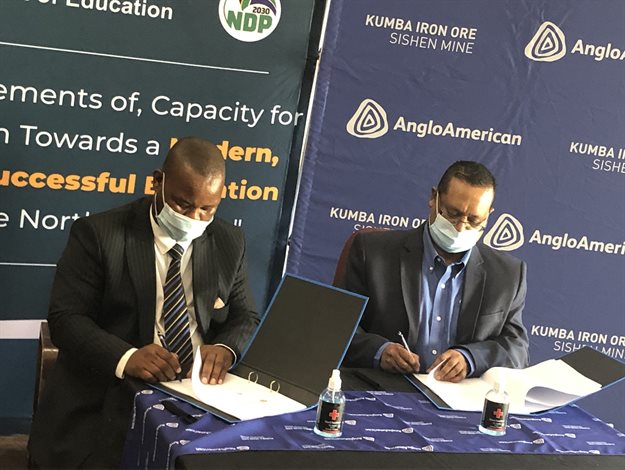
Top stories






More news


Marketing & Media
Ads are coming to AI. Does that really have to be such a bad thing?














The programme was launched in Kathu by the MEC of Education, Zolani Monakali and Anglo American Kumba Iron Ore’s Executive for Corporate Affairs, Dr Pranill Ramchander. To this end, an MoU was signed by both parties outlining the areas of collaboration.
The programme is a core part of Anglo American’s Sustainability Strategy. One of the pillars of the strategy is to create thriving communities close to its operations, with education as a key building block.
“By building on the decades of investment we’ve made in education, we will refocus our resources to provide wide-ranging and quality education, from childhood learning to matric, for the learners in the communities where we operate in South Africa so that they can build a better tomorrow,” said Ramchander.
The programme has been developed in partnership with the Department of Education and complements its 2019 Action Plan—Towards the Realisation of Schooling 2030, which details strategies that aim to improve the performance of South Africa’s schooling system.
The Anglo American South Africa Education Programme aims to improve reading, writing, numeracy levels and quality passes through addressing some of the underlying reasons for poor education outcomes by supporting school management teams, governing bodies, principals, and teaching staff.
The programme has set ambitious learner-focussed targets, aiming to see:
The programme will support school management teams, governing bodies, principals, staff as well as parents towards achieving these learner-focussed targets. There will be a strong focus on helping teachers develop their content knowledge and teaching skills.
Learners will benefit from a range of interventions which are geared to improve their educational outcomes.
Systems and processes will be developed, refined and implemented so that school runs and functions well at all the schools. Where required, teacher training and extensive coaching will be provided so that the teachers are motivated, competent and effective which will lead to teaching and learning time being optimised. Finally, at secondary level, some Saturday school and school camps for Grade 12 learners will be provided.
“Through this programme, we want to lend a hand to building thriving communities with schools that have highly motivated learners and teachers, involved parents and effective school management teams. These are some of the essential pillars to achieving quality education that can guarantee a better tomorrow for the next generation,” concluded Ramchander.